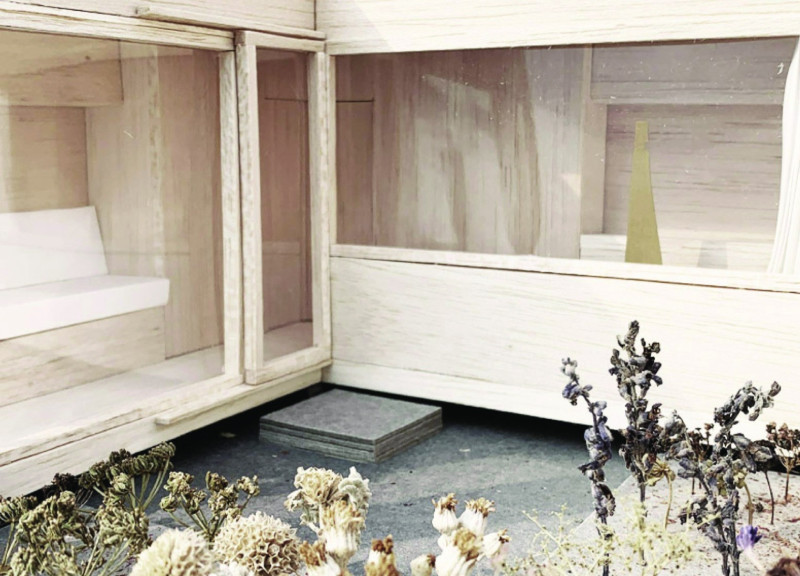5 key facts about this project
Spatial Organization and Functionality
The spatial layout of the Hortus Home is meticulously planned to facilitate both domestic and agricultural activities. The design features designated areas for living and gardening, allowing occupants to engage harmoniously with their environment. Key areas in the project include a well-defined kitchen space directly adjacent to the garden, enabling easy access for culinary pursuits using fresh ingredients. The inclusion of large windows enhances natural light penetration while fostering visual continuity between indoor and outdoor spaces. This seamless integration promotes an elevated quality of life by encouraging occupants to connect with their surroundings.
Sustainable Design Elements
One of the unique aspects of the Hortus Home lies in its commitment to sustainability. The project employs renewable energy sources through the use of solar panels, significantly reducing energy consumption. Additionally, the design implements water management systems such as rainwater harvesting and greywater recycling, demonstrating a comprehensive approach to resource conservation. The choice of materials reflects this ethos; lightweight wood for paneling contributes to thermal efficiency, while concrete provides structural integrity and durability.
Uniquely, the landscape design is focused on cultivating edible plants, such as vegetables and herbs, reinforcing the project’s self-sustaining principles. This deliberate choice not only enhances the aesthetic value but also encourages occupants to engage in gardening, promoting a lifestyle centered around healthy living and ecological mindfulness.
Call to Action
For those interested in further exploring the innovative aspects of the Hortus Home, including architectural plans, sections, and design details, a comprehensive project presentation is available. Delve into the architectural ideas that define this unique approach to sustainable living and discover the potential for these principles to influence future residential projects.























